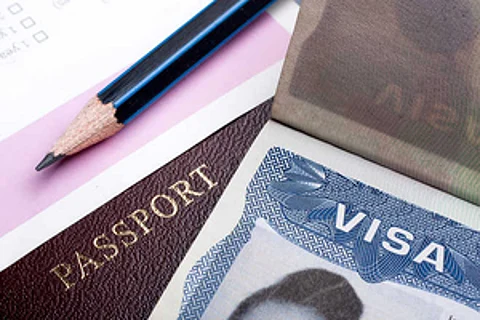

The Committee to Protect Journalists (CPJ) has issued a detailed safety advisory for journalists and media professionals traveling to the United States, in response to growing concerns over possible new travel restrictions and increased scrutiny at the borders of the United States of America. The advisory, aimed particularly at foreign journalists and those covering politically sensitive topics, offers legal, digital, and physical safety tips to help media workers prepare for unpredictable encounters with border enforcement.
This move comes amid reports that the Trump administration is considering a new draft proposal to restrict entry from over 40 countries, including Iran, Russia, Venezuela, and several African nations. The proposed travel bans echo those introduced during Trump’s first term, which were upheld by the US Supreme Court. CPJ noted that the implementation of such measures could happen swiftly and with minimal public notice, prompting them to advise reporters to take proactive steps.
Catalina Cortes, CPJ’s Interim Chief Emergencies Officer, said the organisation has seen a spike in concern among journalists whose work involves traveling to or crossing into the United States. She added that the advisory is designed to help them feel prepared and confident by mitigating the risks that may arise from increased surveillance or questioning.
Among the primary concerns outlined in the advisory is the authority of US Customs and Border Protection (CBP) to search electronic devices without a warrant or probable cause. Journalists may be asked to provide passwords or access to their phones, laptops, or social media accounts. Complying could result in sensitive data being copied or stored, potentially compromising sources and confidential material. Refusal to comply, on the other hand, could lead to device seizure, extended detention, or even denial of entry, particularly for non-citizens or dual nationals with ties to countries affected by the potential ban.
CPJ urges journalists, especially those at higher risk, to consider traveling with separate, clean devices containing only the information needed for the trip. These devices should not be linked to personal or work accounts. Journalists are also advised to log out of apps, clear browsing histories, and remove data that could endanger themselves or others if accessed by authorities. Additionally, they should ensure their devices are encrypted, disable biometric access, and power them down before reaching a border checkpoint.
The advisory recommends completing a risk assessment based on one's immigration status, travel history, and reporting beats. Journalists should prepare for increased questioning at the border, particularly if they cover government or national security issues. Those traveling from or to countries named in the travel restrictions or holding dual nationality may face additional scrutiny. CPJ emphasizes the need to keep emergency contact details on paper in case devices are seized and to have check-in protocols with trusted colleagues or legal advisors in place.
In case of detention, CPJ urges journalists to remain calm, identify themselves as members of the press, and avoid lying to border agents, as doing so can be a criminal offense. Journalists should be aware that while U.S. citizens cannot be denied entry, they may still face extended questioning or device confiscation. Non-citizens, especially visa holders, are at greater risk of being denied entry if they refuse to comply with CBP requests.
The advisory also raises awareness of risks faced by journalists once inside the United States. These include threats tied to reporting on politically sensitive issues, covering protests and civil unrest, and being scrutinized for their online presence. Changes to visa policies could also come suddenly, affecting those with pending or active applications.
CPJ concludes by emphasizing that journalists—freelancers and staffers alike—should consult their employers, legal advisors, or press freedom groups before travel, and remain informed of their rights and responsibilities while crossing US borders.